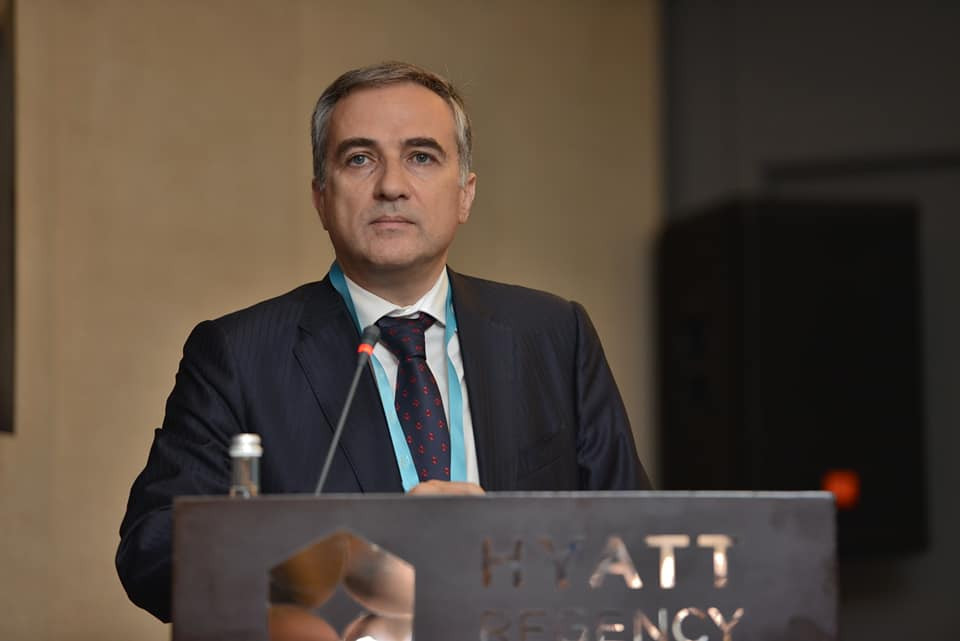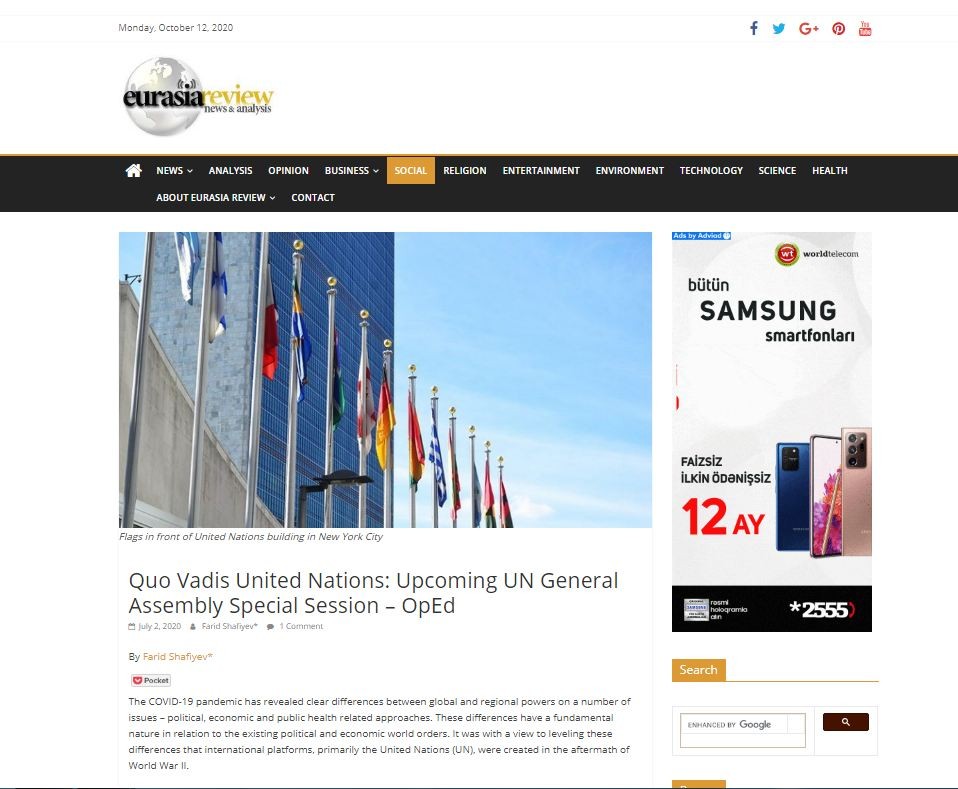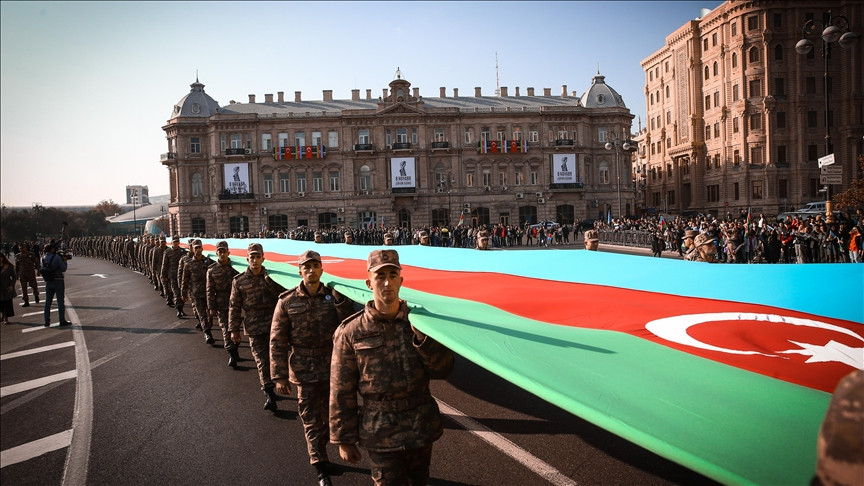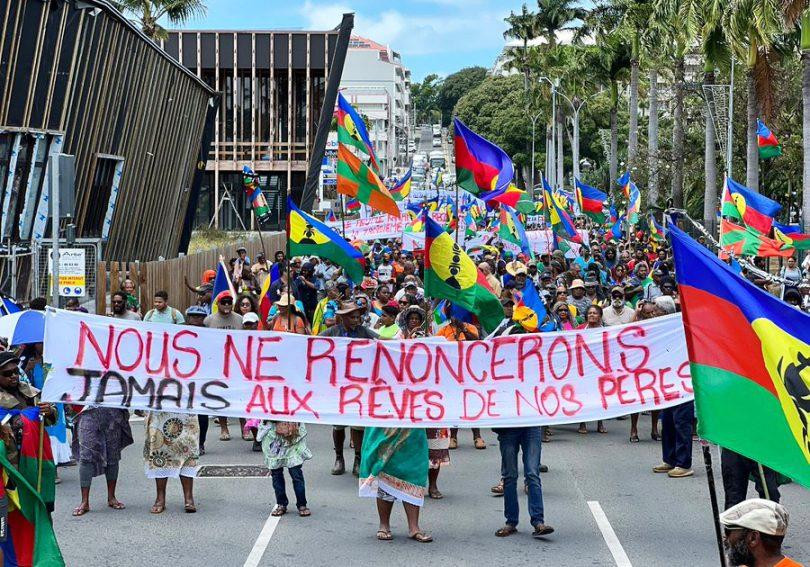The COVID-19 pandemic has revealed clear differences between global and regional powers on a number of issues – political, economic and public health related approaches. These differences have a fundamental nature in relation to the existing political and economic world orders. It was with a view to leveling these differences that international platforms, primarily the United Nations (UN), were created in the aftermath of World War II.
During the Cold War period, the UN and other international organizations and movements proved their efficiency on a number of occasions, although there were times when they could neither prevent nor resolve conflicts.
Recently, especially against the backdrop of the COVID-19 pandemic, institutions of multilateralism have been subjected to fierce criticism to the degree that we are witnessing partial paralysis of those institutions. For example, due to contradictions between the permanent members of the UN Security Council, this institution was not able to pass important decisions aimed at the reduction of current international tensions.
In addition, at the UN General Assembly, some member states put forward several draft resolutions but failed to get approval. UN Secretary-General Antonio Guterres complained that the international community was divided at a time when it was “more important than ever” to be united.
Many pundits deplored the lack of global leadership and pointed to the problem of tribalism, dysfunctional competition, and short-term thinking.
However, unfolding events have shown that no global power or regional organization can solve global problems alone. This applies to both the COVID-19 pandemic and other issues, such as environmental degradation, economic crises, etc.
There is no doubt that COVID-19 is the most serious threat to international security since the end of World War II. Unfortunately, the international community has yet to find an adequate response to the pandemic itself and collateral problems, such as the economic crisis, growing protectionism, and nationalism.
Despite these challenges, the UN is still the only comprehensive platform with the ability to address such issues. However, in the absence of proper action from the UN, regional platforms and other international organizations have tried to find—or at least discuss—mechanisms for responding to the current challenges. Azerbaijan, as the chair of the Turkic Council (Azerbaijan, Kazakhstan, Kyrgyzstan, Uzbekistan, and Turkey) and the Non-Aligned Movement (NAM) (120 members), held virtual summits in April and May.
Members of these organizations reaffirmed the importance of international solidarity and making joint efforts toward the fight against the COVID-19 pandemic. Notably, an emergency summit of the NAM, which took place virtually, was held for the first time (the NAM celebrates its sixtieth anniversary this year). The summit found support from the UN Secretary General, the WHO, the European and African Unions and other organizations.
During the NAM virtual summit, President Ilham Aliyev of Azerbaijan put forward an initiative to convene a special session of the UN General Assembly this fall. To date, there have been thirty such special sessions of the UN General Assembly. Azerbaijan has proposed holding a special session at the level of heads of state and government.
Special sessions can be convened by the UN Secretary General at the request of the Security Council or a majority of UN members. In this regard, Azerbaijan used its diplomatic resources within the framework of the NAM to convene a special session of the UN General Assembly. Initially, the initiative went through the procedure of “silent approval” in the NAM.
Azerbaijan, with the support of the NAM, then submitted a request to the UN Secretary General. The initiative of Azerbaijan gained the support of most members of the UN General Assembly, reaching more than 130 countries. Only Armenia acted against the initiative, but it was left isolated.
The convening of a special session of the UN General Assembly, especially at the highest level, is a significant event. While it will not be possible to solve all the problems associated with the current crisis, an organization as comprehensive as the UN will once again become a platform for global discussions. The silence of this organization, which was created to maintain international peace and security, was advantageous for isolationists and protectionists. However, the initiative of Azerbaijan has broken that silence and instigated further discussion.
Many international projects are driven by individual countries or activists. The League of Nations was proposed by US president Woodrow Wilson; the Hague Conventions on disarmament in the early twentieth century were put forward by Russian Tsar Nicholas II and his foreign minister Mikhail Muravyov; and the International Criminal Court was initiated by Arthur Robinson—the leader of the small island nation of Trinidad and Tobago.
We must hope that the initiative of the president of Azerbaijan will be developed further so that the international community will soon be able to identify common approaches to overcoming the greatest crisis since the end of World War II.








